Looking into the Verso Archive
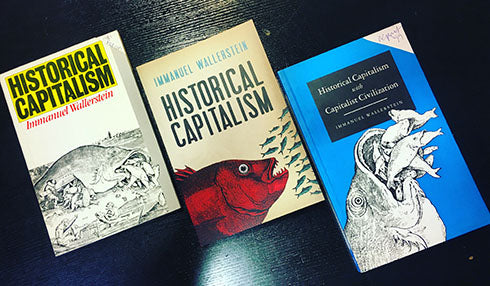
We've been delving deep into the Verso Archive recently, looking back at some classic works from our backlist (& their changing covers). First up, Immanuel Wallerstein's Historical Capitalism in its many iterations: 1983 (left), 1999 (right), and the most recent edition from 2011 in the middle. This, along with ALL our books, is 50% off until the end of the year (with free shipping!)
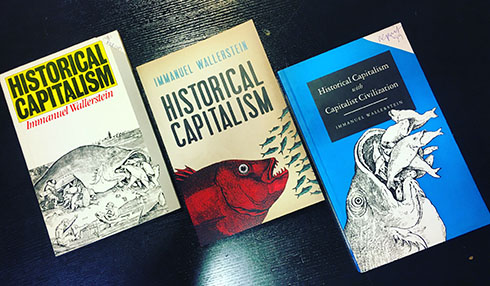
Historical Capitalism with Capitalist Civilization by Immanuael Wallerstein
The master of world-systems theory provides a succinct anatomy of capitalism over the past five hundred years.
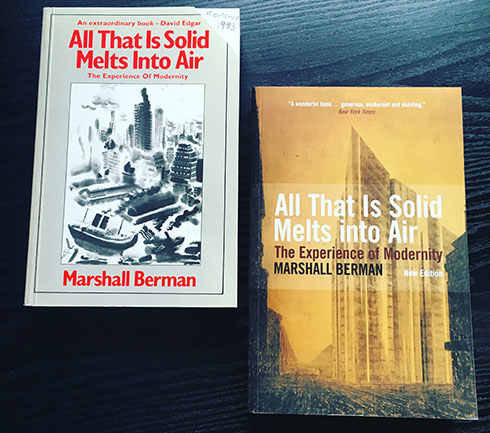
All That is Solid Melts Into Air: The Experience into Modernity by Marshall Berman
All That Is Solid Melts into Air is widely acclaimed as one of the greatest books on modernity. A kaleidoscopic journey into the experience of modernization, it captures the dizzying social changes that swept up and transformed the lives of millions of people.

Imagined Communities by Benedict Anderson
Imagined Communities, Benedict Anderson's brilliant book on nationalism, forged a new field of study when it first appeared in 1983. Since then it has sold over a quarter of a million copies and is widely considered the most important book on the subject. In this greatly anticipated revised edition, Anderson updates and elaborates on the core question: what makes people live, die and kill in the name of nations? See the 1983 edition here.
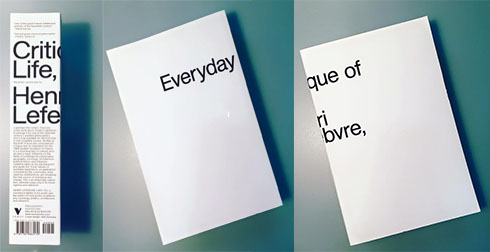
Critique of Everyday Life: The One-Volume Edition by Henri Lefebvre
Lefebvre's classic analysis of daily life under capitalism, brought together in one complete volume for the first time. Written at the birth of post-war consumerism, Critique was an inspiration for the 1968 student revolution in France. It is a founding text of cultural studies and a major influence on the fields of contemporary philosophy, geography, sociology, architecture, political theory and urbanism.

Lineages of the Absolutist State by Perry Anderson
“The breathtaking range of conception and the architectural skill with which it has been executed make his work a formidable intellectual achievement.” – New York Review of Books
Forty years after its original publication, Lineages of the Absolutist State remains an exemplary achievement in comparative history. Picking up from where its companion volume, Passages from Antiquity to Feudalism, left off, Lineages traces the development of Absolutist states in the early modern period from their roots in European feudalism, and assesses their various trajectories. See an older archive edition here.

The Anti-Social Family by Michèle Barrett and Mary McIntosh
First published by Verso in 1982, this sensitive but uncompromising socialist-feminist critique of the nuclear family was reissued as part of our Feminist Radical Thinkers earlier this year. As the nuclear family persists as a structure central to contemporary society, this book remains as pertinent as ever.
See also the beautiful new Verso editions of Straight Sex: Rethinking the Politics of Pleasure by Lynne Segal (First published by Virago Press 1994), Woman’s Consciousness, Man’s World by Sheila Rowbotham (first published by Pelican Books 1973), and Woman’s Estate by Juliet Mitchell (first published by Pantheon Books in 1971).

The Prophet: The Life of Leon Trotsky by Isaac Deutscher
Published over the course of ten years, beginning in 1954, Deutscher’s magisterial three-volume biography turned back the tide of Stalin’s propaganda, and has since been praised by everyone from Tony Blair to Graham Greene. In this definitive work, now reissued in a single volume, Trotsky’s true stature emerges as the most heroic, and ultimately tragic, character of the Russian Revolution.
Communities of Resistance: Writings on Black Struggles for Socialism by A. Sivanandan
A collection of incisive critiques of contemporary Marxism, of post-colonial development and of the Eurocentric assessment of imperialism.
‘There is no socialism after liberation, socialism is the process through which liberation is won.’ Each of the essays in Communities of Resistance acts as a critical reaffirmation of socialist politics as the context for questions of race and resistance.
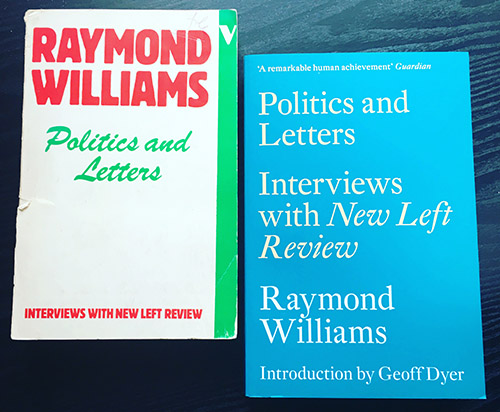
Politics and Letters: Interviews with New Left Review by Raymond Williams
Introduction by Geoff Dyer
“For anybody interested in the relationship between literature and society in the nineteenth and twentieth centuries this book is essential reading.” – Financial Times
First published by New Left Books 1979, this volume of interviews with Raymond Williams ranges across his biographical development, the evolution of his cultural theory and literary criticism, his work on dramatic forms and his fiction, and an exploration of British and international politics.

The End of Parliamentary Socialism: From New Left to New Labour by Colin Leys and Leo Panitch
This trenchant account of the last twenty-five years of the British Labour Party argues that Tony Blair's modernizing tendency was profoundly mistaken in asserting that the only alternative to traditional social democracy and narrow parliamentarianism was an acceptance of neo-liberalism. In this new edition, the authors, in collaboration with David Coates, review the debate in light of the Blair government's first three years in office.
Supposing the Subject, edited by Joan Copjec
A collection of essays by theorists on the psychoanalytic subject in modern culture and politics. Experts from a variety of fields re-examine the origins of the subject as understood by Descartes, Kant and Hegel, and consider contemporary ideas that revive the subject, including queer theory and national identity.
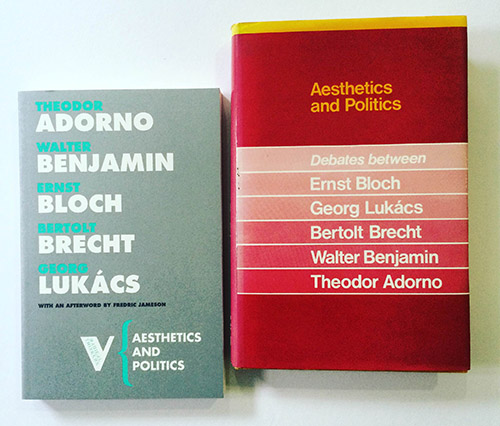
Aesthetics and Politics
by Theodor Adorno, Walter Benjamin, Ernst Bloch, Bertolt Brecht, and Georg Lukács
Afterword by Fredric Jameson
No other country and no other period has produced a tradition of major aesthetic debate to compare with that which unfolded in German culture from the 1930s to the 1950s. In Aesthetics and Politics, first published by Verso in 1980, the key texts of the great Marxist controversies over literature and art during these years are assembled in a single volume. They do not form a disparate collection but a continuous, interlinked debate between thinkers who have become giants of twentieth-century intellectual history.
Antichrist in Seventeenth-Century England by Christopher Hill
Christopher Hill, one of Britain’s most distinguished historians, reconstructs the significance of Antichrist during the revolutionary crises of the early seventeenth century.
The Dialectics of Liberation, edited by David Cooper
The now legendary Dialectics of Liberation congress, held in London in 1967, was a unique expression of the politics of dissent. Existential psychiatrists, Marxist intellectuals, anarchists, and political leaders met to discuss key social issues. Reissued in our Radical Thinkers series, The Dialectics of Liberation compiles interventions from congress contributors Stokely Carmichael, Herbert Marcuse, R. D. Laing, Paul Sweezy, and others, to explore the roots of social violence.

Minima Moralia: Reflections from Damaged Life by Theodor Adorno
Translated by E. F. N. Jephcott
A reflection on everyday existence in the 'sphere of consumption of late Capitalism', this work is Adorno's literary and philosophical masterpiece. This translation, first published by New Left Books 1974, was reissued as part of our Raducal Thinkers series in 2005.